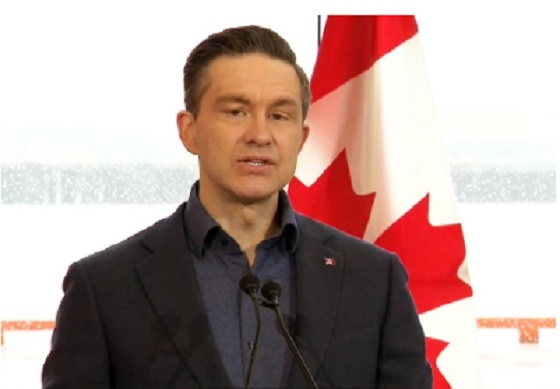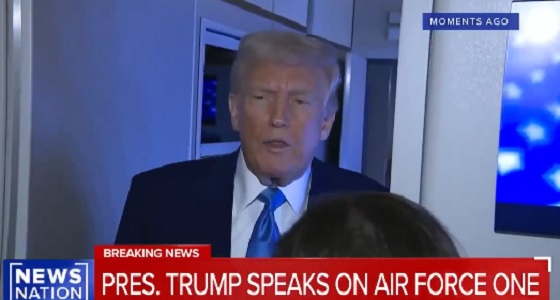Energy
A full-throated endorsement of the Secretary of Energy nominee Chris Wright.

In Praise of Chris Wright
Like others, we have watched with curiosity as President-elect Donald Trump has rolled out his nominees for the various leadership positions of his administration. Whatever your views on any particular candidate, an undeniable pattern has emerged. First, Trump is selecting people who strongly support the specific campaign promises on which he ran, and those chosen are vowing to implement them to the letter. Second, lack of prior government experience seems to be an attribute rather than a detriment. Finally, the helminthoid establishment in Washington appears utterly ill-prepared for the deluge that is set to befall them, and Trump can expect significant bipartisan resistance as it dawns on lawmakers just how literal he was being on the campaign trail.
Of particular interest to this publication were the President-elect’s positions on energy. During his many rallies and speeches, candidate Trump vowed to be extremely supportive of domestic energy production, promising to unleash a wave of new investment in oil, natural gas, coal, and nuclear energy. He also committed to ending participation in various international climate change initiatives, much to the horror of those on the progressive environmental left. The shackles of federal regulation would soon be lifted, he said, and the US would come to dominate the global energy scene once again.
Against this backdrop, President-elect Trump electrified those in industry by nominating Chris Wright to the position of Secretary of Energy on Saturday. We can think of no better person for the job.
Consider his impressive biography. Wright earned an undergraduate degree in mechanical engineering from the Massachusetts Institute of Technology (MIT) and did graduate work in electrical engineering at both MIT and the University of California, Berkeley. He was a pioneer in the development of US shale gas resources, creating enormous value for shareholders over the past two decades. He has grown his current company, Liberty Energy, into one of the premier energy industry service providers in North America. Finally, he is an investor in and board member of Oklo Inc., a next-generation small modular nuclear reactor (SMR) company that has seen its market cap soar in 2024.
Things get even more promising when one studies Wright’s policy positions on energy. In early 2024, Liberty Energy published a 180-page policy document titled “Bettering Human Lives,” and we are hard-pressed to find anything to disagree with. The ten “Key Takeaways” from the summary page read as follows:
1. Energy is essential to life and the world needs more of it!
2. The modern world today is powered by and made of hydrocarbons.
3. Hydrocarbons are essential to improving the wealth, health, and life opportunities for the less energized seven billion people who aspire to be among the world’s lucky one billion.
4. Hydrocarbons supply more than 80% of global energy and thousands of critical materials and products.
5. The American Shale Revolution transformed energy markets, energy security, and geopolitics.
6. Global demand for oil, natural gas, and coal are all at record levels and rising – no energy transition has begun.
7. Modern alternatives, like solar and wind, provide only a part of electricity demand and do not replace the most critical uses of hydrocarbons. Energy-dense, reliable nuclear could be more impactful.
8. Making energy more expensive or unreliable compromises people, national security, and the environment.
9. Climate change is a global challenge but is far from the world’s greatest threat to human life.
10. Zero Energy Poverty by 2050 is a superior goal compared to Net Zero 2050.
What’s not to like? The first nine of these takeaways are objectively true statements of fact, although few executives of publicly traded companies have had the courage to say them out loud. Wright has consistently done so throughout his career. The last is a brilliant reformulation of the climate change debate, as it forces a consideration of the impact on humans, not just the impact of humans.
Wright’s nomination is sure to trigger vigorous opposition by all the predictable people, and we hope he is well prepared to run the gauntlet of personal destruction that the left will undoubtedly use to derail him. Should he win approval in the Senate, Wright has the opportunity to be a historic and transformational figure. His talent, knowledge, leadership attributes, and track record of success make him more than qualified for the job. Count us among those excited at the prospect.
If you’re interested to hear from Wright himself, listen to this episode of Energy News Beat, featuring a discussion with Wright and yours truly, recorded in March of this year.
Thank you for reading. Please subscribe to access all articles and support our work.
2025 Federal Election
Don’t double-down on net zero again

From the Fraser Institute
In the preamble to the Paris Agreement, world leaders loftily declared they would keep temperature rises “well below 2°C” and perhaps even under 1.5°C. That was never on the cards—it would have required the world’s economies to effectively come to a grinding halt.
The truth is that the “net zero” green agenda, based on massive subsidies and expensive legislation, will likely cost more than CAD$38 trillion per year across the century, making it utterly unattractive to voters in almost every nation on Earth.
When President Trump withdrew the United States from the Paris Climate Agreement for the first time in 2017, then-Canadian Prime Minister Justin Trudeau was quick to claim the moral high ground, declaring that “we will continue to work with our domestic and international partners to drive progress on one of the greatest challenges we face as a world.”
Trudeau has now been swept from the stage. On his first day back in office, President Trump signed an executive order that again begins the formal, twelve-month-long process of withdrawing the United States from the Paris Agreement.
It will be tempting for Canada to step anew into the void left by the United States. But if the goal is to make effective climate policy, whoever is Canada’s prime minister needs to avoid empty virtue signaling. It would be easy for Canada to declare again that it’ll form a “coalition of the willing” with Europe. The truth is that, just like last time, that approach would do next to nothing for the planet.
Climate summits have generated vast amounts of attention and breathless reporting giving the impression that they are crucial to the planet’s survival. Scratch the surface, and the results are far less impressive. In 2021, the world promised to phase-down coal. Since then, global coal consumption has only gone up. Virtually every summit has promised to cut emissions but they’ve increased almost every single year, and 2024 reached a new high.
Way before the Paris Agreement was inked, the Kyoto Protocol was once sold as a key part of the solution to global warming. Yet studies show it achieved virtually nothing for climate change.
In the preamble to the Paris Agreement, world leaders loftily declared they would keep temperature rises “well below 2°C” and perhaps even under 1.5°C. That was never on the cards—it would have required the world’s economies to effectively come to a grinding halt.
The truth is that the “net zero” green agenda, based on massive subsidies and expensive legislation, will likely cost more than CAD$38 trillion per year across the century, making it utterly unattractive to voters in almost every nation on Earth.
The awkward reality is that emissions from Canada, the EU, and other countries pursuing climate policies matter little in the 21st century. Canada likely only makes up about 1.5 per cent of the world’s emissions. Add together Canada’s output with that of every single country of the rich-world OECD, and this only makes up about one-fifth of global emissions this century, using the United Nations’ ‘middle of the road’ forecast. The other four-fifths of emissions come mostly from China, India and Africa.
Even if wealthy countries like Canada impoverish themselves, the result is tiny — run the UN’s standard climate model with and without Canada going net-zero in 2050, and the difference is immeasurable even in 2100. Moreover, much of the production and emissions just move to the Global South—and even less is achieved.

One good example of this is the United Kingdom, which—like Prime Minister Trudeau once did—has leaned into climate policies, suggesting it would lead the efforts for strong climate agreements. British families are paying a heavy price for their government going farther than almost any other in pursuing the climate agenda: just the inflation-adjusted electricity price, weighted across households and industry, has tripled from 2003 to 2023, mostly because of climate policies. This need not have been so: the US electricity price has remained almost unchanged over the same period.
The effect on families is devastating. Had prices stayed at 2003 levels, an average family-of-four would now be spending CAD$3,380 on electricity—which includes indirect industry costs. Instead, it now pays $9,740 per year.
Rising electricity costs make investment less attractive: European businesses pay triple US electricity costs, and nearly two-thirds of European companies say energy prices are now a major impediment to investment.
The Paris Treaty approach is fundamentally flawed. Carbon emissions continue to grow because cheap, reliable power, mostly from fossil fuels, drives economic growth. Wealthy countries like Canada, the US, and European Union members have started to cut emissions—often by shifting production elsewhere—but the rest of the world remains focused on eradicating poverty.
Poor countries will rightly reject making carbon cuts unless there is a huge flow of “climate aid” from rich nations, and want trillions of US dollars per year. That won’t happen. The new US government will not pay, and the other rich countries cannot foot the bill alone.
Without these huge transfers of wealth, China, India and many other developing countries will disavow expensive climate policies, too. This potentially leaves a rag-tag group led by a few Western European progressive nations, which can scarcely afford their own policies and have no ability to pay off everyone else.
When the United States withdrew from the Paris Agreement in 2017, Canada’s doubling down on the Paris Treaty sent the signal that it would be worthwhile spending hundreds of trillions of dollars to make no real difference to temperatures. We fool ourselves if we pretend that doing so for a second time will help the planet.
We need to realize that fixing climate change isn’t about sanctimonious summits, lofty speeches, and bluster. In coming weeks I’ll outline the case for efficient policies like innovation, adaptation and prosperity.
2025 Federal Election
Poilievre Will Bring in ‘One and Done’ Resource Approvals, and Ten Specific Projects Including LNG Canada Phase II

From Energy Now
Conservative Leader Pierre Poilievre announced that he will create a new ‘One and Done’ rule for resource projects: a one-stop shop, with one simple application and one environmental review. Poilievre also announced that he will rapidly approve 10 projects that have been stuck for years in the slow federal approval process. That will include Phase II of LNG Canada, a massive natural gas liquefaction project in Northern British Columbia. Many other projects will also be encouraged, all with an aim to bolster Canada’s economic independence against the Americans.
ONE-AND-DONE RULE will:
- Create a ‘One Stop Shop’ – A single office called the Rapid Resource Project Office will handle all regulatory approvals across all levels of government, so businesses don’t waste years navigating bureaucratic chaos and coordinating between multiple departments with different processes. We will cooperate with provincial governments to get all approvals into this single office.
- One application. End duplication – There will be one application and one environmental review per project, ensuring efficiency without sacrificing environmental standards. Instead of multiple overlapping studies that stall projects, governments will work together to deliver a single, effective review.
- One-year maximum wait times for approvals with a target of six months. There will be a target goal of decisions on applications in six months, with an upper time limit of one year, giving businesses certainty, cutting delays, and getting shovels in the ground faster.
“After the Lost Liberal decade, Canada is poorer, weaker, and more dependent on the United States than ever before, especially as a market for our natural resources,” said Poilievre. “My ‘One-and-Done’ rule will quickly and safely unleash Canada’s natural resources by rapidly approving the projects Canadians need more of now: mines, roads, LNG terminals, hydro projects, and nuclear power stations, so we can stand on our own two feet and stand up to the Americans.”
When completed, LNG Canada Phase II will double LNG output from 14 million to 28 million tonnes annually, creating hundreds of jobs in construction, operations and maintenance, and generating new revenues to fund the social programs that Canadians depend on. A new Conservative Government will also repeal C-69, the No Pipelines–No Development Law, and lift the cap on Canadian energy that would prevent LNG Canada Phase II from ever proceeding. Mark Carney has confirmed he will keep both C-69 and the cap in place.
Conservatives will also establish the Canadian Indigenous Opportunities Corporation (CIOC), to offer loan guarantees for local Indigenous-led resource projects.
A new Conservative government will also rapidly review nine other projects to find the hold-ups and accelerate federal decisions to get industry moving, workers working, and dollars flowing back to Canada. The full list of projects is at the end of this release.
Mark Carney and Steven Guilbeault’s “keep-it-in-the-ground” ideology–which maintains Bill C-69, the energy production cap, and the industrial carbon tax–will continue to stifle development in Canada, leading to job losses and increased reliance on foreign imports. Carney has said that “more than 80 per cent of current fossil fuel reserves … would need to stay in the ground.”
“The choice is clear: a fourth Liberal term that will keep our resources in the ground and keep us weak and vulnerable to Trump’s threats, or a strong new Conservative government that will approve projects, unleash our economy, bring jobs and dollars home, and put Canada First—For a Change.”
Some of the priority projects a Poilievre government will work with proponents and First Nations to approve:
- LNG Canada Phase II Expansion Project (BC): Aims to double LNG output but faces power supply challenges and output limitations related to the emissions cap.
- Suncor Base Mine Extension (Alberta): Expansion of an existing mine anticipated to produce 225,000 barrels per day of bitumen froth. Under assessment with the IAAC since 2020.
- Rook 1 Uranium Mine (Saskatchewan): A development-stage uranium project expected to be a major source of low-cost uranium. Approval process started in 2019 with the Canadian Nuclear Safety Commission.
- Springpole Lake Gold (Ontario): A proposed gold and silver mine with an on-site metal mill. Under assessment with the IAAC since 2018.
- Upper Beaver Gold Mine (Ontario): A proposed underground and gold and copper mine. Under assessment with the IAAC since 2021.
- Northern Road Link (Ontario): A proposed all-season, multi-use road in northern Ontario. Under assessment with the IAAC since 2023.
- Crawford Nickel Project (Ontario): A proposed nickel-cobalt mine with an on-site metal mill. Under assessment with the IAAC since 2022.
- Troilus Gold and Copper Mine (Quebec): A proposed gold and copper mine. Under assessment with the IAAC since 2022.
- Sorel-Tracy Port Terminal (Quebec): A proposed new port terminal in the industrial-port area of Sorel-Tracy. Under assessment with the IAAC since 2022.
- Cape Ray Gold and Silver Mine (Newfoundland): A proposed gold and silver mine with a milling complex. Under assessment with the IAAC since 2017.
-

 Courageous Discourse2 days ago
Courageous Discourse2 days agoEurope Had 127,350 Cases of Measles in 2024
-

 Podcasts1 day ago
Podcasts1 day agoTrump’s Tariffs: The US, Canada, and the rest of the world
-

 2025 Federal Election2 days ago
2025 Federal Election2 days agoPierre Poilievre Declares War on Red Tape and Liberal Decay in Osoyoos
-

 2025 Federal Election1 day ago
2025 Federal Election1 day agoMark Carney Comes to B.C. and Delivers a Masterclass in Liberal Arrogance
-

 2025 Federal Election1 day ago
2025 Federal Election1 day agoPoilievre to invest in recovery, cut off federal funding for opioids and defund drug dens
-

 Business1 day ago
Business1 day agoTrump threatens additional 50% tariffs on China, urges ‘patience’
-

 Alberta1 day ago
Alberta1 day agoProvince introducing “Patient-Focused Funding Model” to fund acute care in Alberta
-

 Business2 days ago
Business2 days agoTrump says tariffs on China will remain until trade imbalance is corrected










